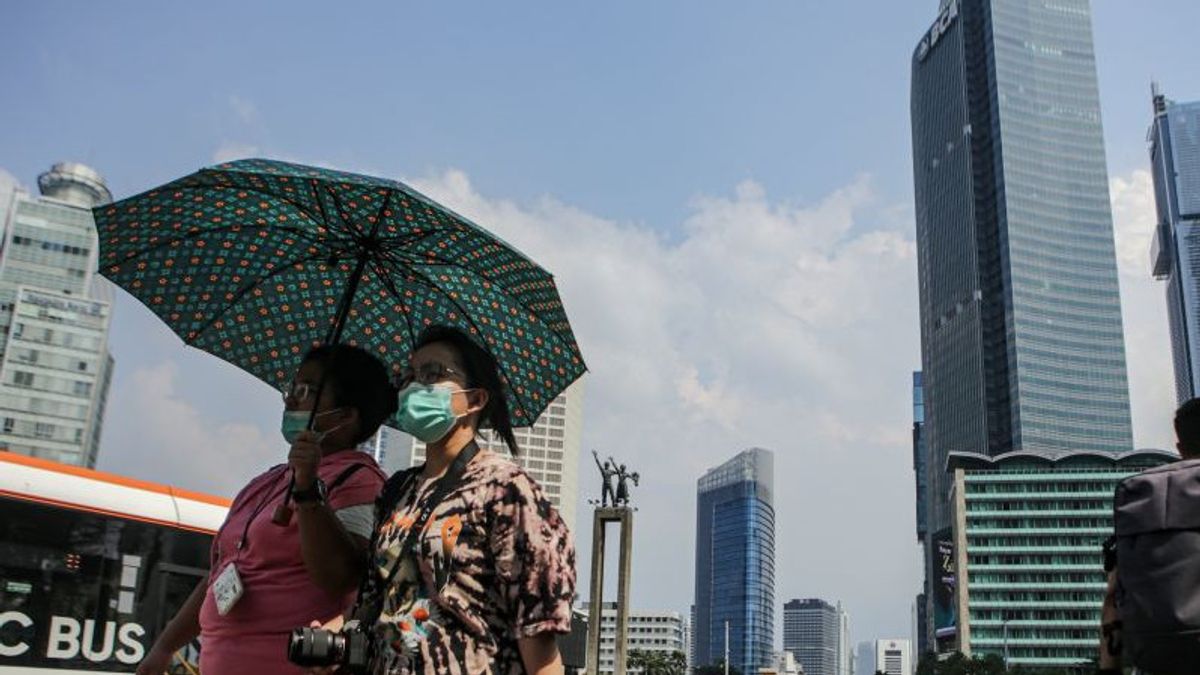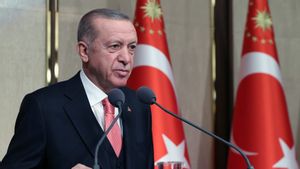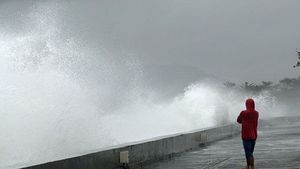JAKARTA - Health expert Prof. Dr. Zubairi Djoerban, SpPD-KHOM, FINASIM said comorbid, infants and children, the elderly, and athletes who practice outdoors are more vulnerable to the bad effects of extreme hot weather than the general public.
"If the hot air is 40 degrees Celsius, almost everyone's health will be affected, it will decrease. However, there are several groups affected, such as the elderly, comorbid sufferers, infants and small children, poor people whose daily work is in the open, as well as athletes," Zubairi said as quoted by ANTARA, Friday, October 6.
The member of the Advisory Council of the Indonesian Doctors Association (PB IDI) also conveyed that one of the bad effects of extreme hot weather is dehydration to the most serious is stroke shock or condition when the body experiences a drastic increase in temperature.
In fact, Zubairi added, extreme heat weather such as heat waves can result in death, as has happened in several countries.
"I convey this data on the death rate. In America, more than 1,200 people die from heat waves every year. In 2022, 1,714 people die from the heat wave," he said.
Meanwhile, Professor of Pulmonology and Respirational Medicine at the Faculty of Medicine, University of Indonesia, Prof. Dr. Tjandra Yoga Aditama, continued to add the bad impact of extreme hot weather on human health into two categories, namely mild and moderate impacts and severe impacts.
"Light and moderate impacts, such as sweating, headaches and dizziness, muscle cramps, drinking to dehydration. Severe impacts, namely impaired consciousness and suffering stroke," he said.
To prevent the impact of stroke in the midst of the hot weather that is currently hitting Indonesia, he revealed a number of symptoms that the public should watch out for.
Among them, excessive sweat, pale face, nausea, vomiting, cramps, headache and dizziness, feeling very tired, unable to concentrate, and the skin feels hot, reddish, and dry.
He also reminded the public to implement cool, stay hydrated, and stay informed mottos, because people need to keep their bodies cool by limiting outdoor activities, doing physical activity gradually, wearing bright and light colored clothes, and using sunscreen with a minimum SPF 30 content.
SEE ALSO:
The public also needs to stay hydrated by consuming a lot of water and still following the latest information about the hot weather and preventive measures on the bad effects of health.
Previously, Expert Researcher at the Center for Climate and Atmospheric Research from the National Research and Innovation Agency (BRIN) Eddy Hermawan said that the currently pungent air temperature in Indonesia is influenced by the El Nino and Indian Ocean Dipole (IOD) phenomenon which is predicted to peak in October 2023.
The phenomenon of El Nino is heating up the sea surface temperature above its normal conditions in the central Pacific Ocean. Meanwhile, the Indian Ocean Dipole (IOD) is a difference in sea surface temperature in the Arabian Sea (West Indian Ocean) and the eastern Indian Ocean in southern Indonesia.
In mid-October 2023, the maximum air temperature is predicted to reach 43 degrees Celsius in the city of Surabaya, 40 degrees Celsius in the city of Semarang, and 37 degrees Celsius in Jakarta.
The English, Chinese, Japanese, Arabic, and French versions are automatically generated by the AI. So there may still be inaccuracies in translating, please always see Indonesian as our main language. (system supported by DigitalSiber.id)


















